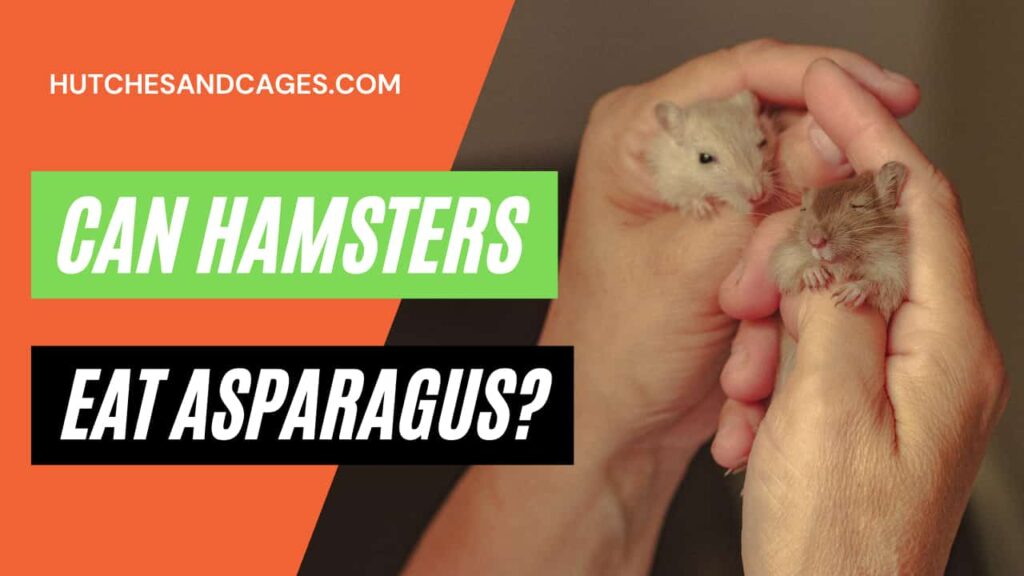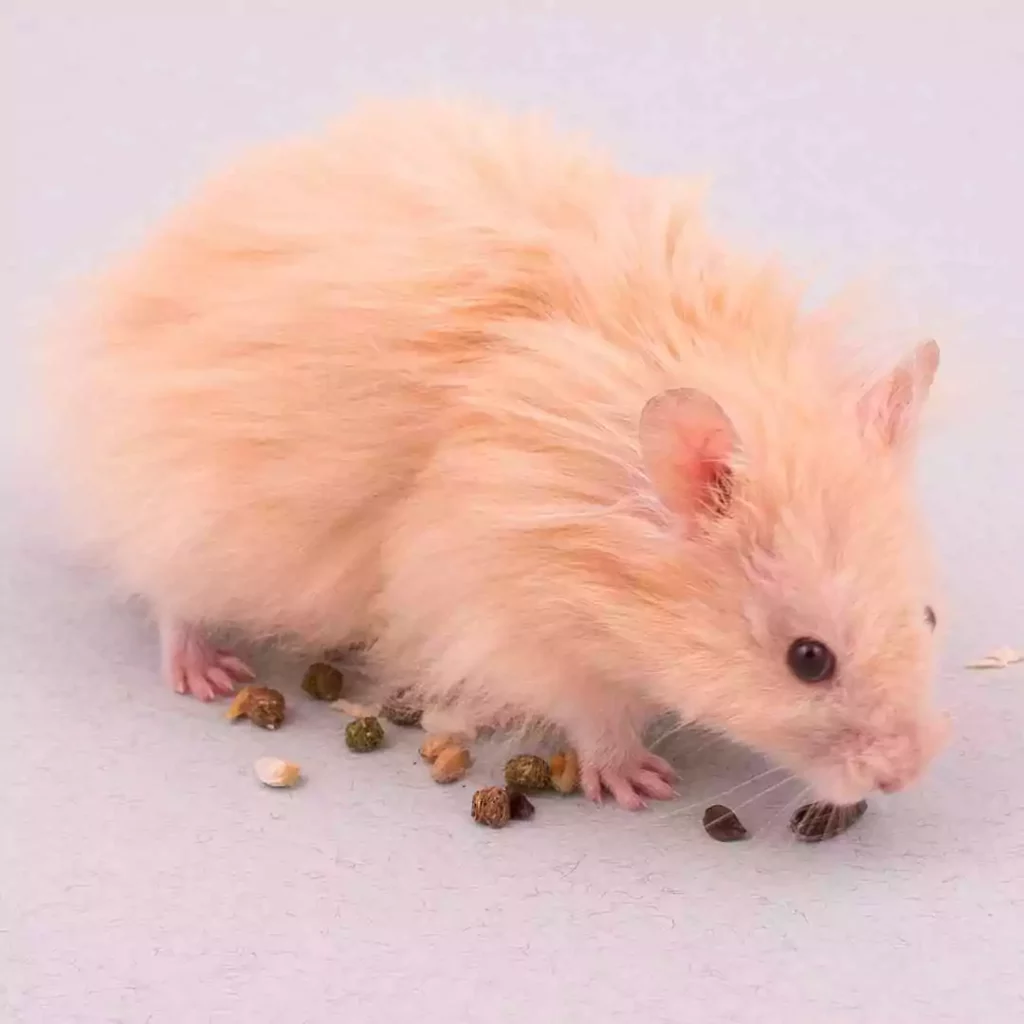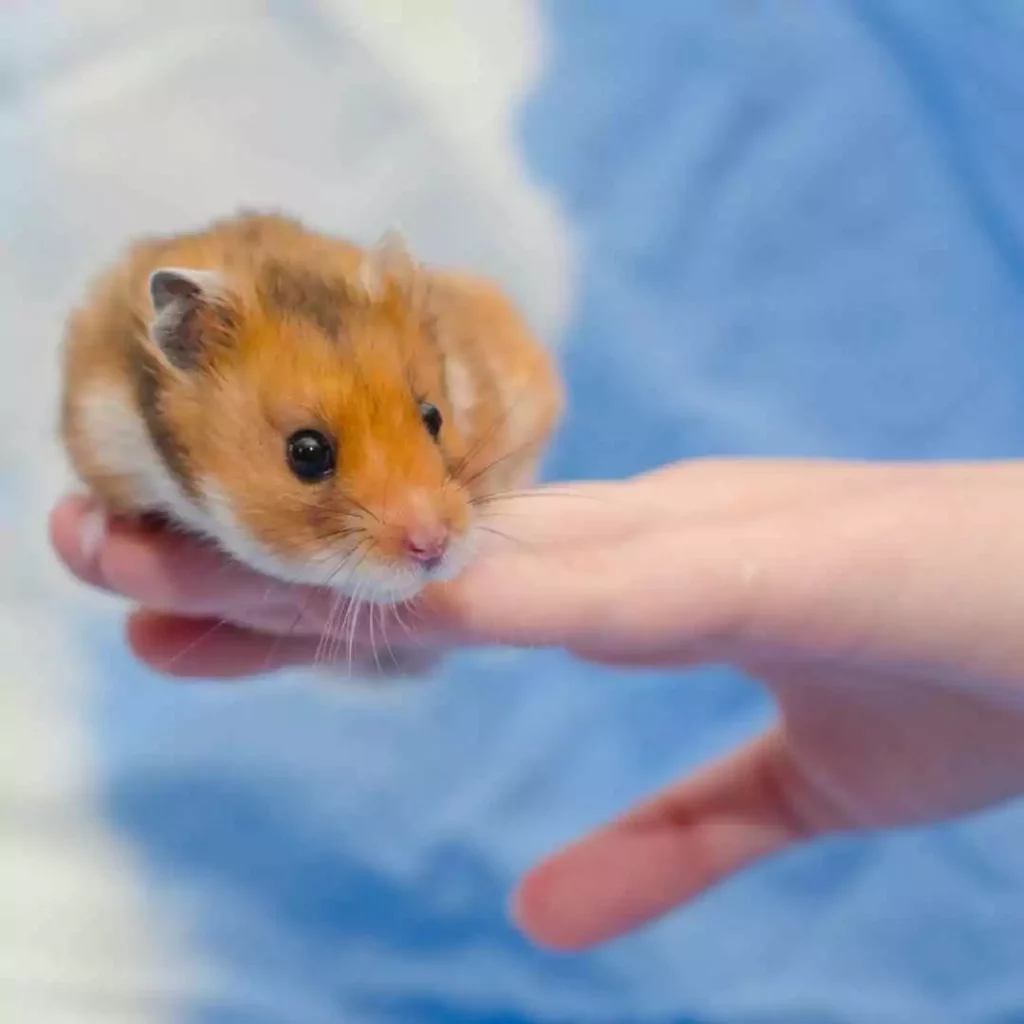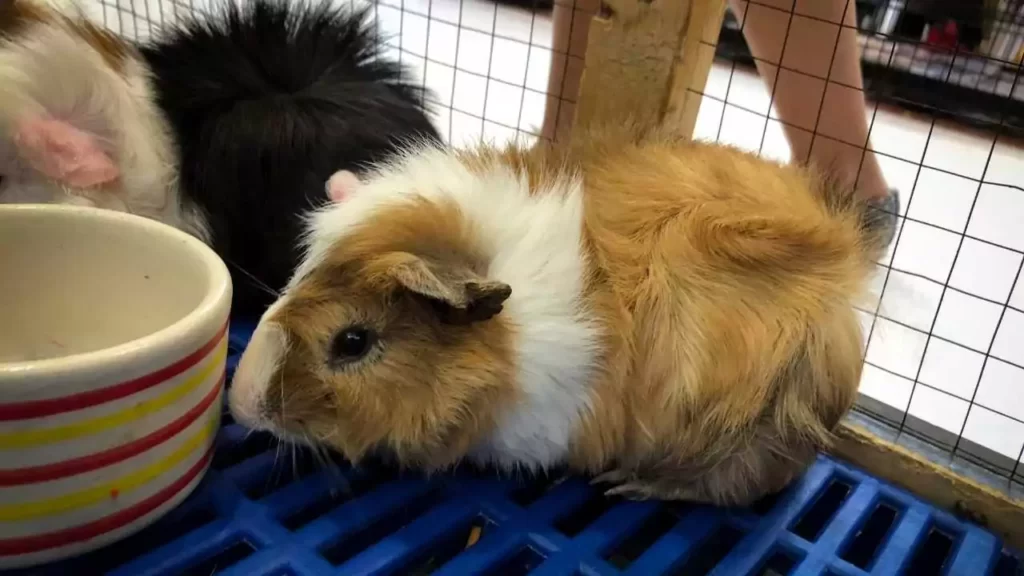Asparagus is famous worldwide, and it is a fantastic and popular vegetable to treat human beings.
It is essential to know what you can feed your little hamster. We know that Asparagus is right for you, but Can Hamsters Eat Asparagus?
Yes, Hamsters can eat Asparagus, but the amount depends on the species. Asparagus is safe for hamsters, and they provide several health benefits to them. But if you feed more than the desired amount, it can cause complications.
If you want to know about hamsters and Asparagus then you are in the right place.
In this blog, you will find all the answers to the questions related to Asparagus for hamsters.
Can Hamsters Eat Asparagus?

Asparagus is a famous vegetable that comes with several health benefits. Hamsters are often thought to be herbivores, but in reality, they are omnivores. Their ideal diet consists of meat and vegetables.
Asparagus is an excellent vegetable that provides quick energy and a fibres’ powerhouse to keep the digestive system healthy. Hamster can eat this vegetable but in a small amount. Fresh Asparagus are beneficial for a hamster that has no sugar or preservatives.
Health Benefits of Asparagus
Asparagus has the right amount of antioxidants, Vitamin E, Vitamin C, Dietary Fibers, and Potassium. Like it gives all these nutrients to human beings, hamsters also enjoy all these health benefits. Antioxidants in asparagus protect hamsters from conditions related to their age, like cancer. Vitamin E keeps the hamster’s skin and eyes healthy.
Vitamin C present in Asparagus provides overall health benefits to hamsters. Dietary fibres aid hamster’s digestive system and potassium lowers blood pressure and keep them healthy.
Asparagus is entirely safe for hamsters, and they come with several health benefits. Let’s explore them.
Enhance EyeSight
Asparagus is rich in Vitamin A that is good for eyesight. Hamsters have poor sight and denigrating vision, so feeding them a portion of food rich in Vitamin A helps curtail this problem.
Helps in Preventing Scurvy
Asparagus is rich in Vitamin C, essential for hamster’s health. Adding Vitamin C to your little pet diet is important to avoid this problem.
Fight against Diseases
Asparagus contains Anthocyanin and other antioxidants that are vital for good health. These enzymes prevent illness, including urinary tract infection and cancer in hamsters.
Can Dwarf Hamsters Eat Asparagus?
Dwarf Hamsters include Chinese, Russian, and Campbell hamsters, and they are smaller than the average hamster. This means that they can’t eat a lot of food. But can Dwarf Hamsters Eat Asparagus?
Yes, Dwarf hamsters can eat asparagus but only in a small amount. Treat your dwarf hamster with tiny pieces of asparagus weekly.
Can Russian Dwarf Hamsters Eat Asparagus?
Russian dwarf hamsters are small creatures, and they can eat asparagus, but only in a short amount. You should not feed larger than ¼ teaspoon. Try to feed asparagus to your little dwarf hamster just before the meal.
How much Asparagus Amount Hamsters can Eat?
Asparagus is a tasty vegetable with a lot of nutrients and antioxidants. But you can’t overfeed it to your little hamster because it contains an upright amount of calcium that is not good for its health. You just need to feed a small amount of Asparagus to your little pet only once or twice a week.
The excessive amount is terrible and can lead to several health problems like obesity and diarrhoea.
Asparagus is a powerhouse of Vitamin A, K, C, Fibers, and antioxidants. Vitamin C and antioxidants boost the immune system, and they are an essential part of the hamster’s wellbeing. But you don’t need to overfeed your hamster with this vegetable.
Can Hamsters Eat Raw Asparagus?
Hamsters love asparagus, and they come with several health benefits. But can hamsters eat raw asparagus?
Yes, definitely. Your hamster will love to eat raw asparagus. Treat your hamster to fresh asparagus once or twice a day. Raw asparagus is also rich in vitamins and minerals, which otherwise may get lost during cooking. Thus, make sure you serve only raw asparagus to your little pet.
Can Hamsters Eat Cooked Asparagus?
Now we know that hamsters can eat asparagus, but what about cooked one? Can hamsters eat cooked asparagus too?
Yes, hamsters can eat cooked asparagus too. But prefer raw asparagus.
Can Hamsters Eat Asparagus Stalks?
Yes, your little pet can eat asparagus stalks along with the asparagus. Asparagus stalks are edible, and you can add them to your hamster’s diet without any hesitation.
Moreover, Stalks are crunchy and rough, helping maintain the hamster’s good dental health. Therefore, you can consider asparagus stalks to add them to the guinea pig’s diet.
What Human Food Can Hamsters Eat?
Hamsters can eat various human foods as long as you treat them no longer than 10% of your hamster’s diet. Don’t feed junk food to your little hamster, only heath fruits and vegetables. Some safe foods that you can feed to your hamster are:
- Apples without seeds
- Bananas
- Blueberries
- Broccoli
- Carrots
- Cauliflower
- Cucumber
- Peas
- Potatoes
- Romaine lettuce
- Spinach
- Strawberries
- Sweet potato
- Squash
- Hay
- Whole grain bread or toast
- Whole wheat pasta (cooked)
- Brown rice (cooked)
- Whole-grain cereal (no sugary cereal)
- Meal worms
- Crickets
- Small pieces of cooked chicken
- Hard-boiled eggs
- Nuts (unsalted, no almonds)
- Peanuts (unsalted)
- Pumpkin seeds
- Lentils
- Sunflower seeds
- Plain air-popped popcorn (no butter or salt)
Final Thoughts
Asparagus is a healthy choice for hamsters but only in a small amount and not very often. However, you can’t overfeed asparagus to your little hamster.
You should monitor the number of asparagus you will feed the hamster. Don’t feed asparagus to your baby hamster. However, feed ¼ teaspoon of asparagus to an adult hamster.
SmallPetsX.Com does not provide veterinary advice. Our aim to help small pet owners understand their pets a little better so that they can provide their pets with the life they deserve. All content is therefore for informational purposes only. If you're concerned about the health of your pet you should seek medical advice from a vet.




